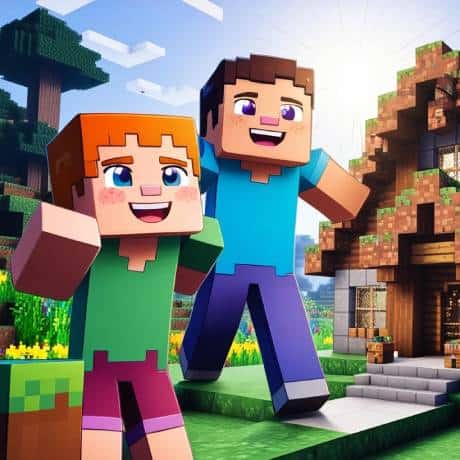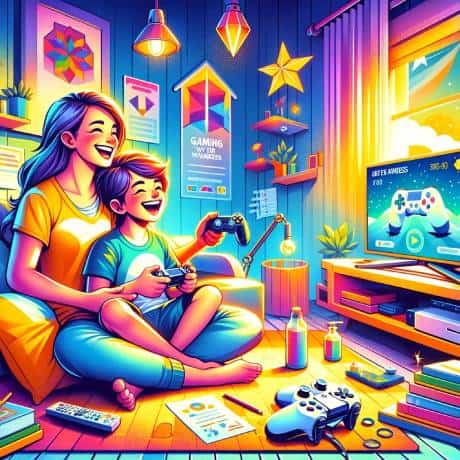What Video Games are Good for Autistic Children
Table of Contents
In the landscape of modern parenting, video games stand out as both a potential source of concern and a valuable tool for development, especially for children on the autism spectrum. The key to harnessing the positive aspects of gaming while mitigating negatives lies in a thoughtful selection based on the child’s unique preferences, developmental needs, and particularly, sensory sensitivities.
Here’s an insightful guide to choosing video games that can be both beneficial and enjoyable for autistic children.
🧠 Educational Games for Cognitive Development
Games designed to enhance cognitive skills such as problem-solving, memory, and logic are invaluable tools. Titles like “Brain Age” and “Big Brain Academy” engage children in stimulating cognitive exercises without overwhelming them, making learning both fun and rewarding.
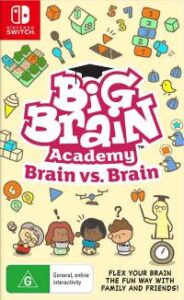
Big Brain Academy
Dive into the realm of cognitive challenges with “Big Brain Academy™: Brain vs. Brain” on the Nintendo Switch™ system, where your intellect is put to the ultimate test! Engage in a diverse array of mind-stimulating tasks ranging from committing a sequence of numbers to memory, pinpointing an animal as it gradually becomes clearer, or navigating a train towards its destination through quick-witted and entertaining activities. Challenge your friends and family to a cerebral showdown in 4-player* contests to determine the supreme brainpower champion. With adjustable difficulty settings, players of all ages can compete on an even playing field, allowing both kids and adults to match wits in this thrilling brain battle!
🏗️ Fostering Creativity Through Building Games
For children inclined towards creativity and construction, games like “Minecraft (in creative mode)” and “Lego Worlds” offer open-ended play that encourages expression and world-building at a comfortable pace. These games allow for creativity with minimal pressure, supporting a child’s imaginative growth.

Minecraft
A sandbox video game that offers a vast, blocky universe where creativity and imagination have no bounds. Players can build, explore, and embark on adventures in a procedurally generated world made up of blocks representing materials such as dirt, stone, ores, and tree trunks. For autistic children, Minecraft serves as an exceptional tool, fostering an environment where they can express themselves freely without the pressures of social expectations. The game’s open-ended nature allows for a stress-free exploration of their creativity, encourages problem-solving skills, and offers a unique platform for social interaction within a controlled and understanding community. Additionally, its customizable gameplay can be tailored to suit various sensitivities, making it an inclusive space that respects and accommodates the diverse needs of autistic players.
🧩 Strategy and Puzzle Games to Sharpen the Mind
Puzzle and strategy games such as “Tetris” and “Plants vs. Zombies (Original)” challenge children to think ahead, develop strategies, and solve problems. The structured challenges these games present can be deeply satisfying to overcome, offering a sense of achievement and bolstering strategic thinking skills.

Plants vs. Zombies
A highly popular tower defence video game developed and published by PopCap Games. In this engaging and strategic game, players take on the role of a homeowner during a zombie apocalypse. The primary defence against the incoming hordes of zombies is an arsenal of different plants with unique offensive and defensive capabilities. Players must strategically choose and plant these varieties in their garden to stop zombies from reaching the house. The game is set across various levels, each introducing different zombies and environmental challenges, requiring players to adapt their strategies. With its whimsical graphics, charming characters, and addictive gameplay, “Plants vs. Zombies” has received critical acclaim and has spawned numerous sequels and adaptations across multiple platforms, appealing to both casual and serious gamers alike. Its simple yet deep mechanics make it accessible to players of all ages, offering a delightful blend of strategy, humour, and continuous action.
👫 Enhancing Social Skills Through Interaction Games
For children working on social skills, games with safe, moderated social components offer a beneficial platform. “Animal Crossing: New Horizons“, for example, provides a gentle environment for interacting with game characters and, potentially, other players, facilitating social development in a controlled, comfortable setting.
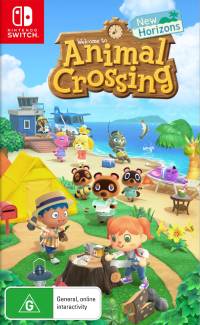
Animal Crossing: New Horizons
A life simulation video game developed and published by Nintendo for the Nintendo Switch, and it represents a significant instalment in the beloved “Animal Crossing” series. Released in March 2020, the game transports players to a deserted island, courtesy of the entrepreneurial raccoon, Tom Nook. In this tranquil setting, players are given the freedom to customize their environment to their liking. The gameplay revolves around exploring the island, gathering and crafting items, catching insects and fish, and developing the island into a vibrant community of anthropomorphic animals. “Animal Crossing: New Horizons” offers a real-time clock and season matching with the real world, providing a dynamic and immersive experience. Its open-ended gameplay, coupled with the ability to visit islands created by other players, makes it an endlessly engaging game that encourages creativity, social interaction, and relaxation. The game has been praised for its charming graphics, soothing soundtrack, and its therapeutic qualities, making it a comforting escape for many, especially during challenging times.
🗺️ Adventure Games: Simple Plots for Rich Exploration
Games with straightforward narratives and clear objectives, like “Super Mario Odyssey” and “The Legend of Zelda: Breath of the Wild“, allow for exploration and adventure without the need for complex dialogues or intricate plots, making them accessible and enjoyable for children who prefer simplicity.
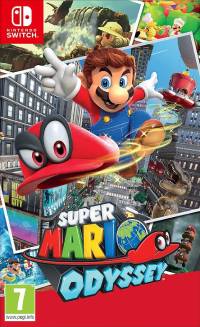
Super Mario Odyssey
A platforming adventure game developed and published by Nintendo for the Nintendo Switch. Released in October 2017, this critically acclaimed title follows Mario on an expansive journey across various worlds, known as kingdoms, to rescue Princess Peach from his nemesis, Bowser. The game introduces Mario’s new ally, Cappy, a sentient hat that allows Mario to take control of other characters and objects, adding a fresh twist to the series’ classic gameplay. “Super Mario Odyssey” is celebrated for its inventive levels, stunning visuals, and innovative mechanics, blending traditional Mario gameplay elements with new, creative challenges. Each kingdom is a vibrant, open-ended environment filled with secrets to discover, puzzles to solve, and bosses to defeat. The game encourages exploration and rewards curiosity, offering a multitude of collectibles, including Power Moons, which are necessary to power Mario’s airship, the Odyssey, and pursue Bowser across the globe. With its joyful atmosphere, engaging gameplay, and homage to previous Mario titles, “Super Mario Odyssey” stands as a masterpiece in the franchise, appealing to longtime fans and newcomers alike.
🎶 Rhythm and Music Games for Sensory Integration
Games that incorporate music and rhythm, such as “Just Dance” and “Beat Saber“, are excellent for sensory integration and motor skills development. They encourage movement and coordination in a fun, therapeutic way, making them a great choice for physical activity.

Just Dance
A popular rhythm game series developed and published by Ubisoft, which has become a staple in the genre of music and dance games. Launched first in 2009, the series invites players to mimic dance moves shown on the screen, to a variety of songs ranging from recent hits to classic tracks. Utilizing motion sensors or the smartphone app, the game captures the player’s movements, scoring them based on accuracy and rhythm. “Just Dance” can be played solo or with friends and family, making it a go-to option for parties and social gatherings. Over the years, the franchise has expanded to include a wide array of songs, catering to diverse musical tastes and featuring hits from various genres and decades. The game is not only entertaining but also serves as a fun way to engage in physical activity, encouraging players to get up and move. With its colorful graphics, easy-to-follow choreography, and ever-expanding song library through annual releases and downloadable content, “Just Dance” continues to be a beloved franchise for gamers of all ages, promoting joy and fitness through dance.
🐉 Role-Playing Games (RPGs) for Older Children
For older children or those with higher comprehension levels, RPGs like the “Pokémon” series offer character development and story progression, engaging players in a narrative that provides a sense of accomplishment and growth.

Pokémon Let’s Go, Pikachu!
A role-playing video game developed by Game Freak and published by Nintendo and The Pokémon Company for the Nintendo Switch. Released in November 2018, this game is a remake of the 1998 Pokémon game, “Pokémon Yellow.” It combines traditional Pokémon RPG gameplay with elements from the mobile game “Pokémon GO” to create a unique experience. Set in the Kanto region, players embark on a journey to become a Pokémon Master, with Pikachu as their companion. The game introduces a new mechanic for capturing Pokémon, where players use the Switch’s motion controls to throw Poké Balls, similar to “Pokémon GO.” Additionally, it supports two-player cooperative gameplay, allowing a second player to join the adventure at any time. “Pokémon Let’s Go, Pikachu!” features vibrant graphics that bring the world of Pokémon to life in a way never seen before in the series. With its blend of nostalgic elements and modern gameplay, it appeals to both longtime fans and newcomers to the Pokémon franchise.
⚙️ Customizable Difficulty Levels to Avoid Frustration
Games that allow for customization of difficulty levels can be adjusted to suit the child’s skill level, helping to avoid frustration. This feature ensures that games remain accessible and enjoyable, regardless of a child’s specific abilities.
🎈 Non-Competitive Games for Stress-Free Play
Opting for games that focus on exploration, creativity, and learning without the competitive pressure can provide a stress-free gaming experience. These games encourage a relaxed engagement with content, allowing children to explore at their own pace.
🌟 Sensory-Friendly Games for Sensitive Children
For children with sensory sensitivities, it’s essential to choose games with less intense graphics, customizable sound settings, and the option to control the pace of play. These games can provide a comfortable and enjoyable experience without risking sensory overload.
Final Thoughts
Selecting the right video games for autistic children requires careful consideration of their individual needs and preferences. By prioritizing games that support development, creativity, and social skills in a sensory-friendly environment, parents can ensure that their children not only benefit from their gaming experiences but also enjoy them to the fullest. Watching gameplay videos, reading reviews, and involving children in the selection process can further ensure that the games chosen align with their interests and comfort levels, making video gaming a positive part of their development and daily life.
Additional Reading on Video Games
-
Gaming with Awareness: Strategies for Parents of Autistic Kids
-
Video Game Addiction in Children and Adolescents: Signs, Symptoms, and Strategies
-
Screen Time Rules for Kids: Age-by-Age Guide for Parents
-
Secret Agent Society [2]
This study evaluated the effectiveness of the Secret Agent Society (SAS) program, a video gaming-based social skills intervention for children with autism, against a cognitive skills training game. Seventy child-parent dyads participated, showing that the SAS group improved more in social skills and problem behaviours compared to the control group.
Disclaimer: Please note that the video games mentioned in this content were not specifically designed with autistic children in mind. However, features within these games, such as the creative mode in Minecraft, may offer a less stressful and more accommodating environment for children on the autism spectrum to explore their creativity and engage in play. It is important to understand that the information provided here is intended for general informational purposes only and should not be seen as a substitute for professional medical advice, diagnosis, or treatment. We encourage parents and guardians to consult with qualified healthcare professionals or specialists in autism spectrum disorders to obtain tailored advice and support that meets the specific needs of their child. Furthermore, our mention of any video games is for informational purposes only, and does not imply an endorsement or affiliation with these games or their developers.
Author:
 |
Lionel Thomas Father, Gamer and Founder with a Passion for Health, AI, Environment and Gamification of Life. |
Author Tools:
- ChatGPT (Content Enhancements & Research)
- GSpeech (Audio by AI)
- Other Tools (AI)...
Artists:
References:
-
1. Making Popular Video Games Good for Kids Affected by Autism
Autism Parenting Magazine
https://www.autismparentingmagazine.com/...
Summary:
This article by Randy Kulman, PhD, emphasizes the particular attraction of video games to children with autism, highlighting their benefits in fostering cognitive development, social skills, and emotional learning. Kulman advocates for the use of popular video games as educational tools, noting that they can improve attention and persistence in learning. However, he also cautions against potential over-engagement and problematic behaviors. The piece offers strategies for parents and educators to help children apply game-based learning to real-world skills and suggests specific games that can aid in developing executive function, problem-solving, and social-emotional learning skills.
-
2. Randomized Controlled Trial of a Video Gaming-Based Social Skills Program for Children on the Autism Spectrum
Springer Link
https://link.springer.com/article/10.100...
Summary:
Beaumont, R., Walker, H., Weiss, J. et al. Randomized Controlled Trial of a Video Gaming-Based Social Skills Program for Children on the Autism Spectrum. J Autism Dev Disord 51, 3637–3650 (2021). https://doi.org/10.1007/s10803-020-04801-z
This study evaluated the effectiveness of the Secret Agent Society (SAS) [https://www.secretagentsociety.com/] program, a video gaming-based social skills intervention for children with autism, against a cognitive skills training game. Seventy child-parent dyads participated, showing that the SAS group improved more in social skills and problem behaviors compared to the control group. The findings suggest SAS could be a convenient, cost-effective option for improving social skills in autistic children, particularly during periods like COVID-19 when traditional face-to-face services are limited.
-
3. 5 Popular Games That Help Children with Autism Spectrum Disorders
Learning Works for Kids
https://learningworksforkids.com/2015/04...
The article highlights five popular video games beneficial for children with Level 1 Autism Spectrum Disorder, emphasizing their role in enhancing social, emotional, and cognitive skills. Minecraft fosters social interaction and self-regulation; If... promotes social and emotional learning; New Super Mario Bros. U encourages cooperative play and motor skills; Portal 2 develops communication and problem-solving abilities; and Draw Something 2 aids in fine motor skills and creative expression. These games help autistic children connect with peers and develop essential life skills through engaging and interactive gameplay.
-
4. The Use of Analog and Digital Games for Autism Interventions
National Library of Medicine (NIH)
https://www.ncbi.nlm.nih.gov/pmc/article...
Summary:
The article "The Use of Analog and Digital Games for Autism Interventions" by Gray Atherton and Liam Cross offers a comprehensive overview of how game-based approaches can support autistic individuals across various age groups. This scoping review targets educators, practitioners, and parents, detailing studies that have explored the effectiveness of both analog and digital games in enhancing the lives of autistic children, adolescents, and adults. The focus is on games that improve social communication skills along with cognitive, learning, and physical aspects, emphasizing the potential for games to provide a naturalistic and engaging context for learning and interaction.
The review highlights the historical context of autism diagnosis and the pivotal role of play in early development, as outlined by pioneers like Kanner, Asperger, and Piaget. It discusses how games, through their structure and interactive nature, can facilitate the development of crucial skills such as joint attention, turn-taking, strategy, and social behaviors. Moreover, the article addresses the challenges faced by autistic individuals in imitating social behaviors and maintaining attention, suggesting that game-based interventions, with their built-in reward systems, can offer motivating and educational alternatives.
The review divides the discussion into digital and analog games, providing examples of interventions that have shown promise in supporting autistic individuals. Digital games, often involving advanced technology like virtual reality and robotics, offer immersive experiences that can be tailored to the user's interests and needs. Analog games, including board games and role-playing activities, promote face-to-face interaction and social engagement. The review also emphasizes the importance of games in fostering peer relationships and building social capital, particularly for autistic children who might struggle with social inclusion.
The article concludes with recommendations for future research, highlighting the need for more rigorous testing of game-based interventions to establish their effectiveness and generalizability. It calls for collaboration between game designers, psychologists, and educators to create interventions that are both engaging and scientifically sound, ensuring that games can be a viable tool for autism interventions.
This summary captures the essence of the article, focusing on the potential of game-based approaches to enhance the lives of autistic individuals by improving their social, cognitive, and physical skills.








 Snacks
Snacks Water
Water Eye Sight
Eye Sight Hearing
Hearing




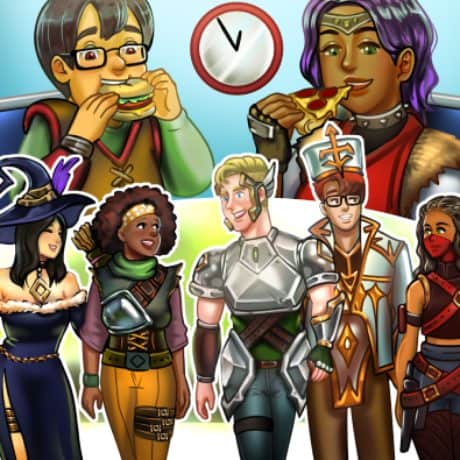









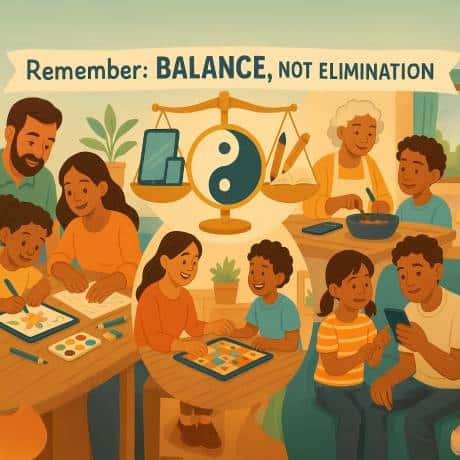

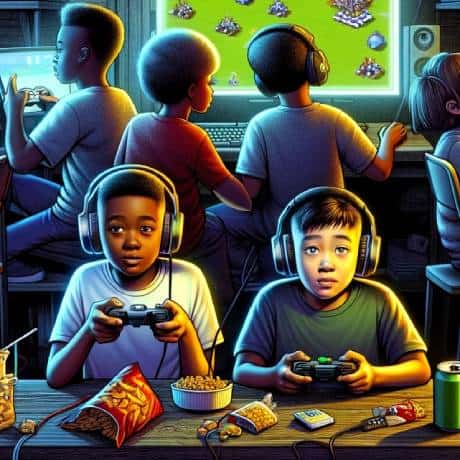

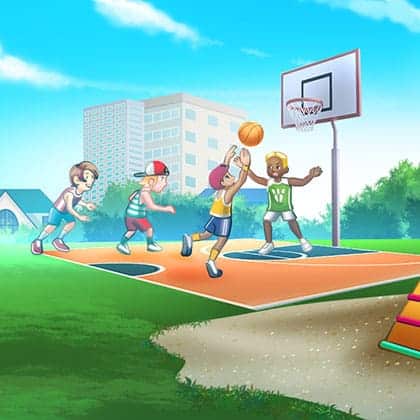



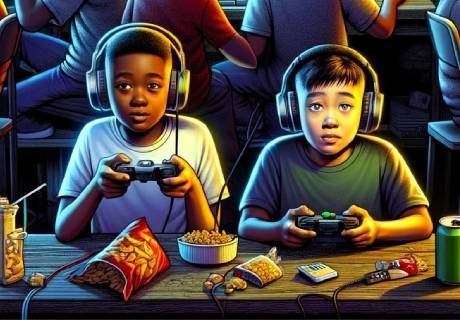
 Screen Time
Screen Time Play Sports
Play Sports
